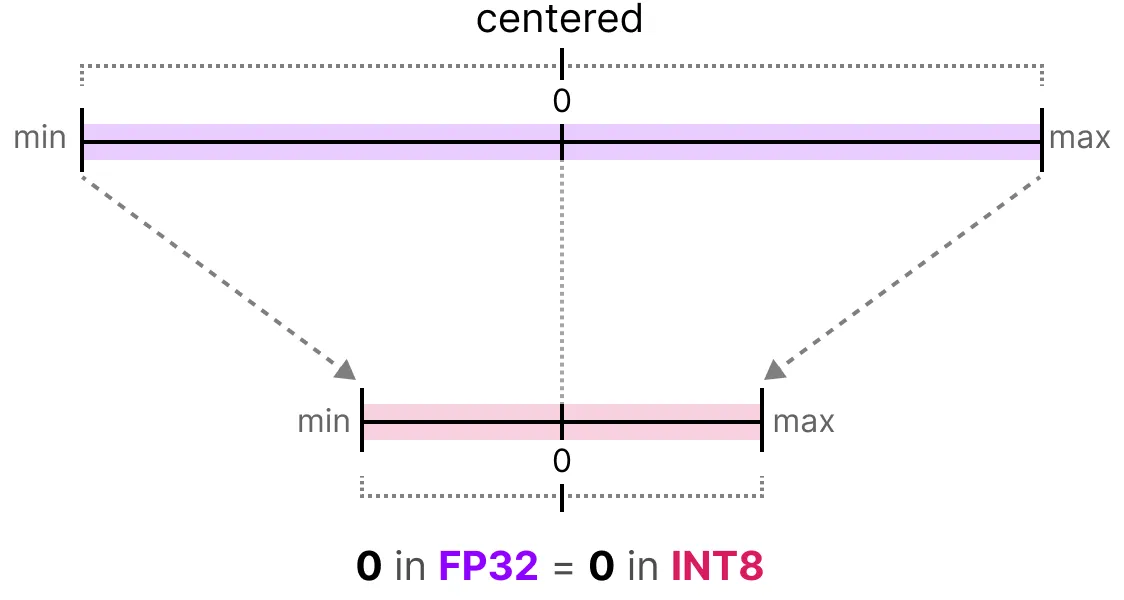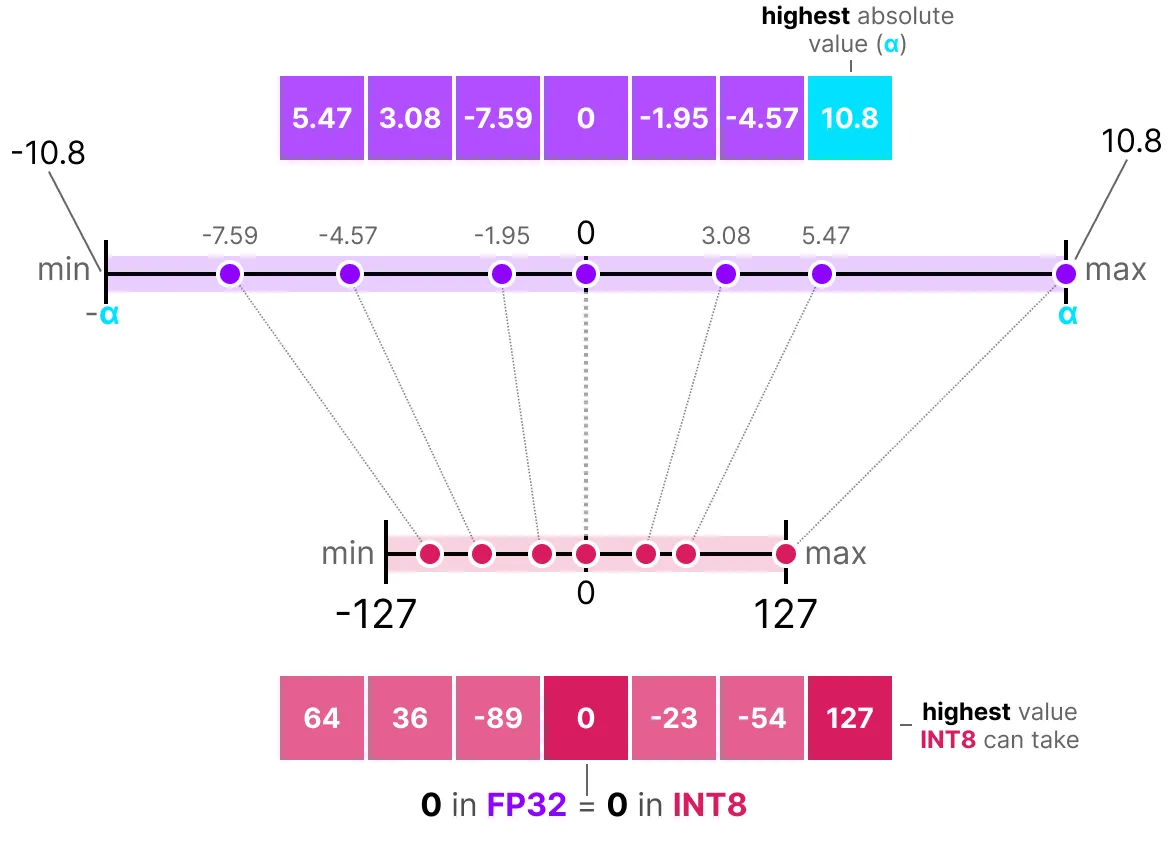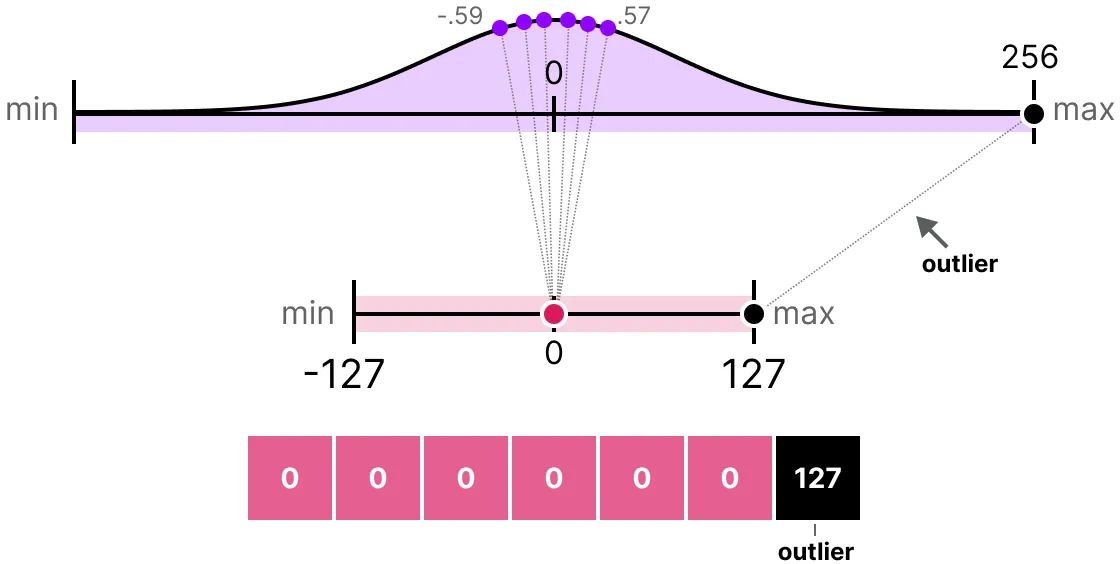Symmetric quantization
- Quantized value for zero = full precision zero
Absolute maximum (absmax) quantization
- Given a list of values, we take the highest absolute value, , as the range to perform the linear mapping
- e.g. FP32 → INT8
- e.g. FP32 → INT8
- = max representable value of your format
- scale factor
- quantization error = (in original precision)
Asymmetric quantization
- It maps the minimum () and maximum () values from the float range to the minimum and maximum values of the quantized range.
- Example with zeropoint quantization
- = max representable value of your format
- = max representable value of your format
- scale factor
- zeropoint
-
- e.g. gets mapped to
- e.g. gets mapped to
Outliers
Clipping
-
If your vector has an outlier, then using “naive” quantization can lead to most values being mapped to the same spot in the band
-
We need to clip the outlier e.g. in FP32
-
How do you choose the clipping range?
-
For weights and biases
- Manually choosing a percentile of the input
- Optimize the mean squared error (MSE) between the original and quantized weights.
- Minimizing entropy (KL-divergence) between the original and quantized values
-
For activations
- Unlike weights, activations vary with each input data fed into the model during inference, making it challenging to quantize them accurately.
-


